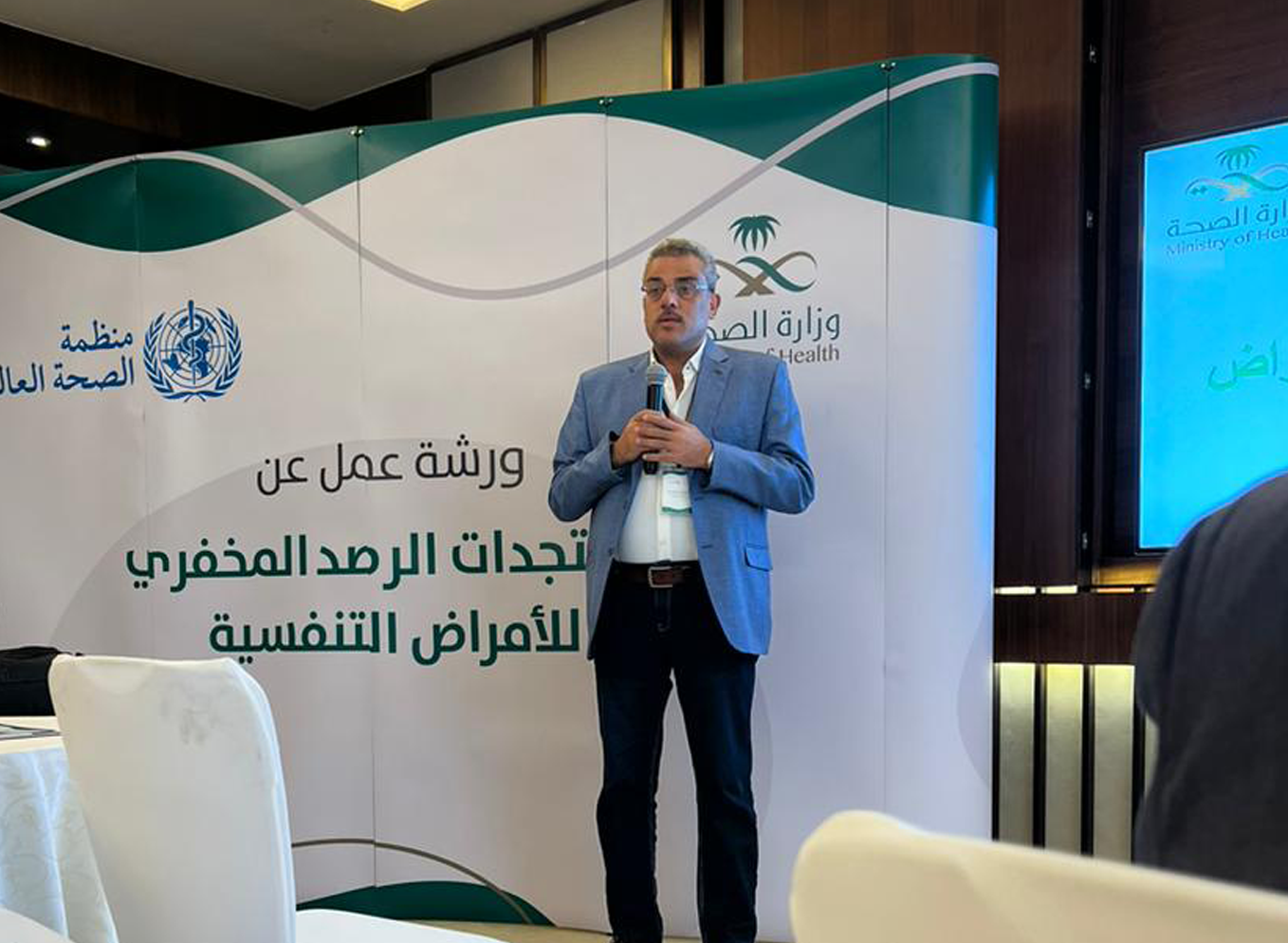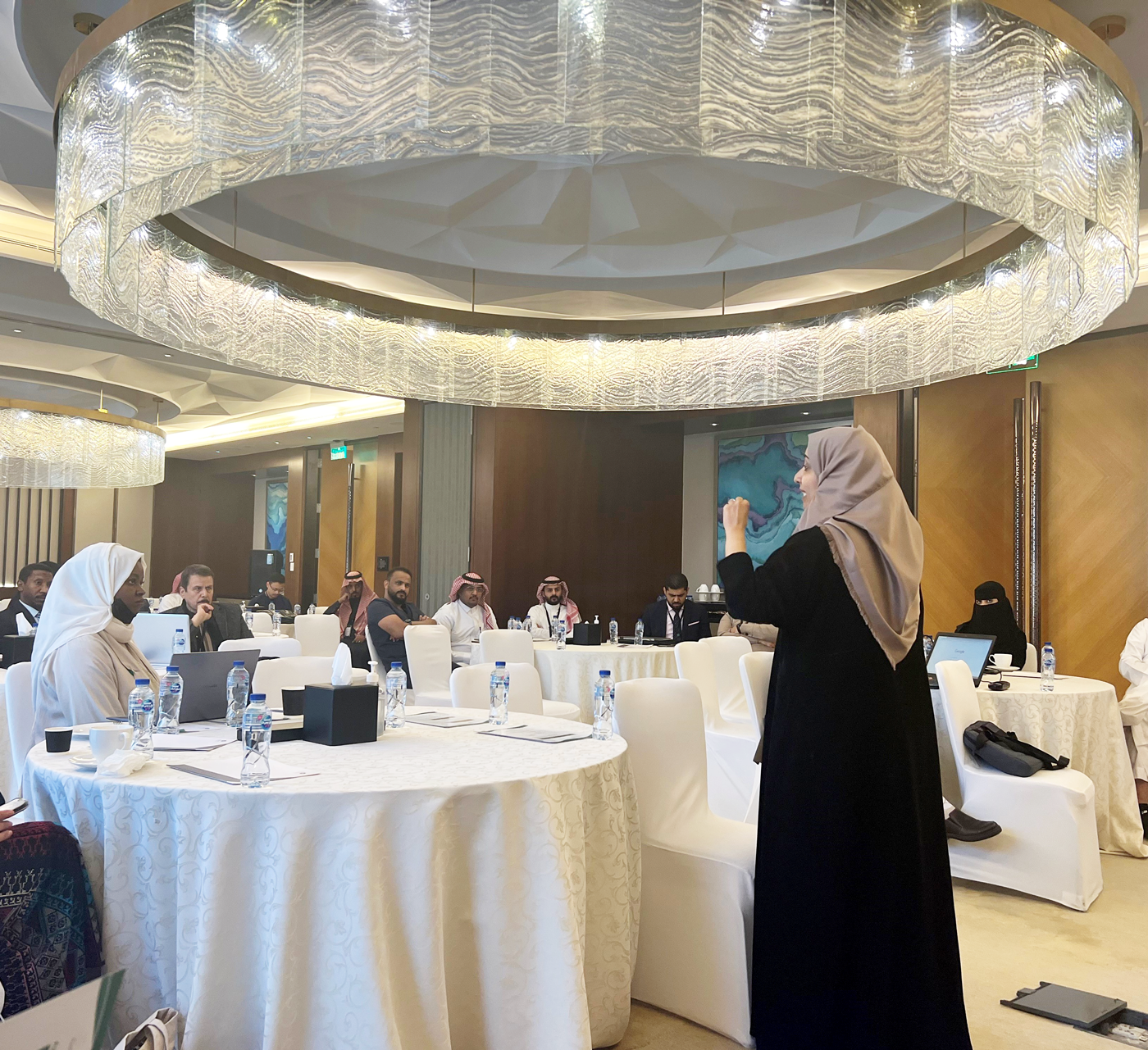 WHO staff member during the EMFLU-2 training session, December 2022
WHO staff member during the EMFLU-2 training session, December 2022
Cairo, 8 May 2023 – The timely and regular collection of epidemiological data, both at individual and aggregated levels, can allow countries to assess changes associated with the emergence of different respiratory pathogens with epidemic and pandemic potential. This data can be translated into evidence-based information for policy-makers that can be used to enhance prevention measures at national, regional and global levels.
Eastern Mediterranean Flu (EMFLU) is a standardized data collection electronic platform for sharing epidemiological and virological data on influenza in WHO’s Eastern Mediterranean Region. It was designed and is maintained by WHO’s Regional Office to support countries of the Region.
An upgraded version of this platform, EMFLU-2, was initiated in 2019. The updating process was accelerated due to the emergence of severe acute respiratory syndrome coronavirus-2 (SARS-CoV-2) and the need to integrate different respiratory pathogens within the sentinel influenza surveillance system.
EMFLU-2 was piloted in a number of countries in the Region, including Saudi Arabia. Feedback from countries during the piloting phase helped to fine-tune the upgraded version for a successful roll out of EMFLU-2 in the Region.
To prepare for the next pandemic, EMFLU-2 acts as a regional respiratory viral surveillance platform that is flexible enough to monitor multiple emerging and re-emerging respiratory pathogens, fostering the integration approach adopted by WHO at regional and global levels.
Building capacities
In December 2022, a team from WHO conducted an EMFLU-2 training of trainers course for focal points from Saudi Arabia’s Ministry of Health at central and regional levels. They were trained on the platform’s new features, from data entry, monitoring and coordination between EMFLU-2 users to map navigation and report development. The upgraded version is user-friendly with simple interface features that increases the utility of the tool for end users at sentinel sites, ministries of health and laboratories. Moreover, it is designed to allow different access levels for different users in the system, promoting country ownership.
From the initial stages of its implementation of influenza surveillance, Saudi Arabia has shown considerable improvement. In 2019, it was ranked first among all countries in the Region with respect to regular and timely data-sharing.
 An EMFLU-2 training session in Saudi Arabia, December 2022
An EMFLU-2 training session in Saudi Arabia, December 2022
Rolling out EMFLU-2
“Saudi Arabia’s team will do a great job rolling out EMFLU-2 independently after this training, with more than 100 sentinel sites and a number of regional laboratories in the network, a task that might take a lot of time if exclusively conducted by WHO’s technical team. This reflects the commitment and competency of Saudi Arabia’s team”, says Engineer Amir Aman, a technical expert from the Regional Office.
He notes that EMFLU-2, with its many upgraded features, will enable the capturing of influenza sentinel data along with data on SARS-CoV-2 and other respiratory viruses of epidemic and pandemic potential, in harmony with the country’s integration roadmap.
Rolling out EMFLU-2 in Saudi Arabia will assist the country in improving its performance indicators when it comes to data quality and monitoring, he adds.
“WHO will continue to provide technical guidance and work closely with Saudi Arabia throughout the new set-up process for EMFLU-2 to ensure a smooth transition in the country”, says Dr Rania Attia of the Regional Office.
Related links
Training workshop aims to enhance timely reporting of sentinel influenza data in Jordan
WHO extends support to Saudi Arabia in testing upgraded electronic influenza surveillance platform




